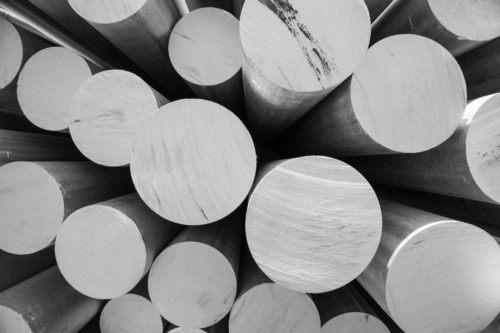What Does Stahl Specialty Company Do?
What Does Stahl Specialty Company Do?
Blog Article
3 Easy Facts About Stahl Specialty Company Explained
Table of ContentsLittle Known Facts About Stahl Specialty Company.Everything about Stahl Specialty CompanyThe Best Guide To Stahl Specialty CompanyStahl Specialty Company Things To Know Before You Get This5 Simple Techniques For Stahl Specialty Company
The refined distinction exists in the chemical material. Chemical Comparison of Cast Aluminum Alloys Silicon advertises castability by reducing the alloy's melting temperature level and boosting fluidness during spreading. It plays a crucial function in enabling complex mold and mildews to be filled up precisely. Furthermore, silicon adds to the alloy's toughness and wear resistance, making it useful in applications where longevity is critical, such as vehicle parts and engine elements.It additionally improves the machinability of the alloy, making it simpler to process into completed items. By doing this, iron contributes to the general workability of light weight aluminum alloys. Copper increases electrical conductivity, making it beneficial in electric applications. It additionally boosts deterioration resistance and adds to the alloy's general strength.
Manganese adds to the stamina of light weight aluminum alloys and improves workability. It is frequently made use of in wrought light weight aluminum items like sheets, extrusions, and accounts. The presence of manganese help in the alloy's formability and resistance to breaking during fabrication processes. Magnesium is a light-weight aspect that provides strength and impact resistance to aluminum alloys.
Zinc enhances the castability of light weight aluminum alloys and assists control the solidification procedure during spreading. It improves the alloy's toughness and solidity.
4 Easy Facts About Stahl Specialty Company Described
Since aluminum-silicon alloys have good spreading homes, high gas residential or commercial properties, simple procedures, and exceptional corrosion resistance, aluminum-silicon alloys are most commonly made use of in the die-casting market at home and abroad. At the very same time, aluminum-silicon alloys are also reasonably early and extensively acknowledged alloys developed and utilized in die-casting. After continuous research study and improvement, a lot of the current worldwide mainstream aluminum-silicon alloys have actually been completed and are absolutely nothing greater than A356, A360, A380, ADC12, B390, and A413.
The main thermal conductivity, tensile toughness, return strength, and prolongation differ. Among the above alloys, A356 has the highest thermal conductivity, and A380 and ADC12 have the least expensive.

Stahl Specialty Company Can Be Fun For Everyone
In precision casting, 6063 is fit for applications where intricate geometries and high-grade surface coatings are extremely important. Examples consist of telecommunication enclosures, where the alloy's premium formability permits smooth and cosmetically pleasing layouts while preserving structural honesty. In a similar way, in the Illumination Solutions industry, precision-cast 6063 elements produce stylish and reliable lights fixtures that call for complex shapes and good thermal efficiency.
(https://www.anobii.com/en/018095c6db0f515107/profile/activity)
The A360 shows exceptional prolongation, making it optimal for complex and thin-walled elements. In precision spreading applications, A360 is appropriate for industries such as Customer Electronics, Telecommunication, and Power Devices.

In precision spreading, light weight aluminum 413 beams in the Customer Electronic Devices and Power Equipment markets. This alloy's exceptional deterioration resistance makes it an exceptional option for outside applications, making certain resilient, resilient products in the discussed sectors.
Some Ideas on Stahl Specialty Company You Should Know
Once you have made a decision that the light weight aluminum die casting procedure appropriates for your project, a crucial next step is selecting one of the most appropriate alloy. The aluminum alloy you choose will significantly affect both the casting process and the buildings of the end product. Due to the fact that of this, you must Get More Info make your decision thoroughly and take an educated strategy.
Figuring out the most suitable light weight aluminum alloy for your application will certainly imply evaluating a vast variety of attributes. These comparative alloy characteristics adhere to the North American Pass Away Casting Organization's standards, and we've separated them right into two groups. aluminum metal casting. The initial category addresses alloy features that impact the manufacturing procedure. The second covers features impacting the residential or commercial properties of the final item.
The alloy you choose for die casting straight impacts several elements of the spreading process, like just how simple the alloy is to deal with and if it is susceptible to casting defects. Warm cracking, likewise called solidification cracking, is a regular die casting defect for light weight aluminum alloys that can result in interior or surface-level rips or cracks.
The Definitive Guide for Stahl Specialty Company
Certain light weight aluminum alloys are a lot more at risk to warm cracking than others, and your selection ought to consider this. An additional common defect found in the die casting of aluminum is die soldering, which is when the cast sticks to the die wall surfaces and makes ejection difficult. It can damage both the actors and the die, so you need to seek alloys with high anti-soldering buildings.
Rust resistance, which is already a significant characteristic of aluminum, can vary considerably from alloy to alloy and is a vital particular to think about depending upon the ecological problems your product will be revealed to. Put on resistance is one more property frequently sought in light weight aluminum products and can differentiate some alloys.
Report this page